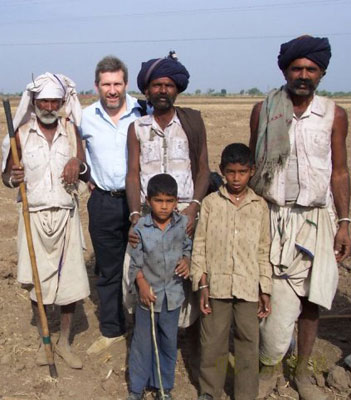
NRI welcomes the award of the Nobel Peace Prize to the Intergovernmental Panel on Climate Change (IPCC), jointly with Al Gore. The Nobel Committee's announcement notes that "Through the scientific reports it has issued over the past two decades, the IPCC has created an ever-broader informed consensus about the connection between human activities and global warming".
In the IPCC's response, its Chairman, Rajendra Pachauri, said that "This is an honour that goes to all the scientists and authors who have contributed to the work of the IPCC". NRI's Associate Research Director (Social Sciences) and Professor of Development Anthropology, John Morton, is amongst those thus honoured, being one of the 450 Lead Authors who worked on the IPCC's Fourth Assessment Report, published this year, in the area of 'Climate Change Impacts, Adaptation and Vulnerability'. His contribution was based on his considerable expertise in livestock and pastoralist development, with a particular interest in issues of drought management and irrigation, and his substantial field experience in Africa and South Asia.
On hearing the news, Prof. Morton commented that "The award of the Nobel Peace Prize recognizes the importance of global climate change to all aspects of human society, including the dangers of conflict over natural resources that lie ahead if warming goes unchecked. The IPCC process has been a collective international and multi-disciplinary effort. I am very proud to have been involved in the agricultural chapter on 'Food, Fibre and Forest Products' [PDF 920Kb], in which we were able to review the serious potential impacts, objectively and with full recognition of how complex and locally-specific they will be." As well as being a Lead Author on this agricultural chapter, Prof. Morton was also a Contributing Author to the chapter concerned with specific climate change impacts in 'Africa' [PDF 1.8Mb].
For more information on NRI's activities relating to the impact of climate change, especially for small-scale agriculture in Africa, contact Prof. John Morton (

